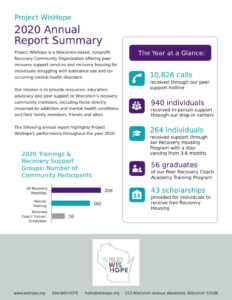As an extension of mental health, recovering from addiction takes commitment, dedication, and honesty. Sharing these values with another person who has been through the same experiences can prove highly cathartic and reassuring to one’s peace of mind. Partnering with such a kindred spirit elevates the accessibility of recovery, allowing partners to coach each other along the path of sobriety to reach the next level.
Socialization throughout the many steps of recovery from alcohol and/or substance use disorder proves central to a myriad of programs: AA, 12-Step, NA, and so on. The group therapy model acts as a nexus to connect those who can identify with the unique strife of mental health conditions relevant to use disorder. While no one person will be able to tell every coping individual how they can best “vanquish” their addictive tendencies, sharing and identifying with the underlying sentiments of another person’s life often quenches the lurking need for empathy.
Finding the right person to act as a sponsor or recovery coach takes time and patience. It is important to keep your options open and check in about the efficacy of the relationship. Different recovery strategies take hold differently with each individual in recovery, so don’t feel bad if a coach doesn’t work out. Here are some tips for finding the right person to share the ups and downs of recovery with.
LISTEN BEFORE DECIDING
Many sponsors are found by their sponsees through group meetings. As one of the more recognizable facets of recovery, finding sponsorship can present an unexpected influx of anxiety. Whenever recovery is portrayed in entertainment, a sponsor typically surfaces with little effort. But how exactly should one anticipate finding their own sobriety confidant?
- Who draws your attention? When an individual shares their truth during a group meeting, the natural response can be tuning in or tuning out. If you find yourself tuning in repeatedly to the same speaker, this might be a result of a shared sense of identity, connection, or world experience — all of which make developing a shared language of recovery that much smoother.
- Whose voice do you hear days after the meeting ends? One of the most powerful gifts a sponsor can provide is the guidance of mantra. Too many people view addiction like the ignition system of a car— it is either on with relapse or off during sobriety. A better comparison might be a vehicle’s oil system, which more accurately represents the seeming omnipresence of addiction. A mantra can offer an alternative supplement to the “stinking thinking” often associated with use disorder, like a synthetic substitute.
- Listen to your own recovery. While a recovery coach definitely possesses the potential to boost recovery, it might not behoove every individual going through recovery to take on a coach if their mental health is in a good place. Granted, the risks of taking on a coach are minimal in that should it not work out, at least the attempt was made. Still, identifying the reasons behind seeking supplemental support from a coach can prove massively insightful. Is this a manifestation of anxiety? For those struggling with codependency, does the decision to seek a recovery coach resemble any past attempts to flail for a rescuer? Answering these questions through introspective reflection might reveal what kind of coach a recovering individual should seek, if at all.
COMMON REASONS WHY PEOPLE USE RECOVERY COACHES
Maybe you or someone you know is on the fence about seeking recovery assistance from a trained recovery coach. Deciding can hinge upon initiative, commitment, and chemistry from two parties. Although recovery is not a one-size-fits-all outfit, learning some of the reasons why others have elected to recover with the help of a coach may alleviate some of the concerns underscoring the resource.
- Not feeling heard: As wonderful an outlet as group meetings are for sharing and listening to personalized experiences with addiction and sobriety, they can sometimes feel like a void. At first, the allure of speaking into a non-judgemental space offers peace of mind. But over time, it can feel just like that — space. Many pursue the more personal resource of recovery coaching to feel heard and to have another individual with similar experiences who can identify with their state of mind.
- Crisis has no timeline: Aside from triggers, the temptation for relapse evades prediction. Designating a trusted comrade to be there when use disorder rears its head separates a fortified recovery effort from one prone to relapse. Most use disorders necessitate the management of one’s tendencies as opposed to overestimating one’s own willpower.
Staying ahead of addiction requires vigilance. Without the pursuit of improvement and growth, the specter of use disorder can easily catch up and erode any progress made towards sobriety. Enlisting the assistance of a recovery coach plans and protects for the future, even if relapse feels like a distant past. The guidance of this relationship empowers one’s connection to living for the present moment and running towards vulnerability, instead of away from it. Some individuals may receive mentorship from no sponsors throughout the entirety of their recovery, while others may meet with numerous sponsors at different points in their lives. At WisHope, we can help you find the formula that works for you. We understand that the road to recovery is a life-lasting pursuit, and we aim to provide you the tools and resources to do this, long after your stay at our treatment facilities or recovery homes. Don’t wait to get help — call us today at (844) 947-4673.


